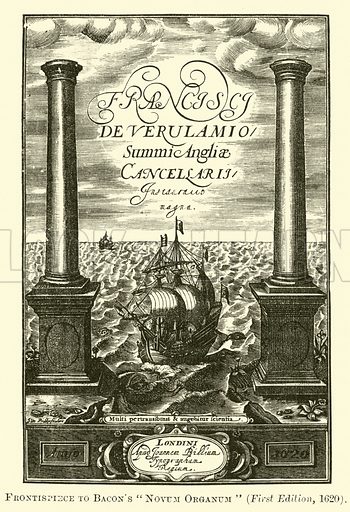About
The Story
Studying philosophy complements scientific training and offers a range of benefits for scientists. By exploring philosophical topics, scientists can sharpen their critical thinking skills, reflect on the broader implications of their work, and gain a deeper understanding of the philosophical underpinnings that shape scientific inquiry. Moreover, philosophy provides a broader perspective that can inspire and inform scientific pursuits, fostering a well-rounded and thoughtful approach to advancing human knowledge. Philosophy explores the nature of knowledge, truth, and justification. Understanding different epistemological theories can help scientists critically evaluate the methods they employ, the evidence they gather, and the conclusions they draw in their research. Unfortunately, the current scientific education curriculum does not cover the philosophical aspect of science. This website is inspired by one of the pioneering scientific philosophers in history, Sir Francis Bacon.
Novum Organum, written by Sir Francis Bacon in 1620, is a seminal work that revolutionised the way we perceive and approach science. Bacon’s masterful treatise laid the foundation for the scientific method, encouraging systematic inquiry and empirical observation as the means to unlock the secrets of the natural world. Bacon’s Novum Organum marked a significant departure from the prevailing scholastic and deductive methods used by ancient philosophers and medieval scholars. He criticised the Aristotelian reliance on syllogism and emphasised the need for inductive reasoning. Bacon urged scientists to move beyond preconceived notions and dogmas and instead base their conclusions on observable evidence. By advocating this empirical approach, Bacon paved the way for the scientific method that forms the backbone of modern science. Bacon’s method involves a cyclical process of observation, experimentation, and refinement of hypotheses. It encourages scientists to perform experiments, collect data, and then draw conclusions based on the evidence. If the conclusions are consistent with the evidence, they are accepted; if not, the hypotheses are revised or rejected. This iterative process of experimentation and refinement has become the cornerstone of modern scientific inquiry. At the core of Novum Organum lies Bacon’s emphasis on inductive reasoning and experimentation. Bacon introduced the concept of “instantia” or instances, which are specific observations of natural phenomena. Through a systematic process of collecting and analysing these instances, scientists can derive general principles or laws. This empirical method enables researchers to make informed hypotheses and predictions about the natural world, leading to the advancement of knowledge and the development of practical applications.
This website is inspired by the methods written in Novum Organum and attempts provide understanding of its historical context and the ideas it introduced, scientists can gain a deeper appreciation for the evolution of their field and the challenges faced by early pioneers. The website attempts to cover 4 arears:
Epistemological Foundations: Novum Organum lays the epistemological foundations of the scientific method. Scientists can benefit from understanding the principles of inductive reasoning, empirical observation, and hypothesis testing, which continue to form the bedrock of scientific inquiry. Bacon’s identification and critique of the four idols that hinder human understanding (idols of the Tribe, Cave, Marketplace, and Theater) can help scientists recognise and overcome their own biases and preconceptions, thus fostering a more objective and critical approach to research. Scientiarum section of the website is dedicated for historical section of science.
Ethical and philosophical Considerations: Novum Organum raises important ethical considerations in the pursuit of scientific knowledge. By being aware of the potential consequences of their research and applications, scientists can approach their work with greater responsibility and mindfulness. Interpretatione Naturae section of the website is dedicated for exploring the philosophical and ethical aspects of od science.
Methodology Refinements and Practical Applications: Although science has advanced significantly since Bacon’s time, ideas introduced in Novum Organum can inspire scientists to reflect on their current methodologies and consider ways to refine and improve their approaches to research and experimentation. Also, these new ideas can inspire scientists to seek out innovative solutions and contribute to the development of technologies and practices that benefit society. The Technology Translatio is dedicated to exploring new methods, technologies, and applications of science.
Holistic Perspective: Novum Organum discusses the interplay between science, human nature, and society. Scientists can benefit from exploring these broader philosophical aspects of science, fostering a more holistic perspective on their work and its implications. The Commentarius Solutus explores ideas and prospectives emerging areas of sciences.
I believe that any person who is interested in science should read Novum Organum not only to appreciate its historical significance but also to gain valuable insights into the scientific method, critical thinking, and ethical considerations Engaging with classic works like can stimulate intellectual curiosity and creativity in scientists, encouraging them to think beyond their immediate research projects and explore broader questions about the nature of knowledge and reality.

